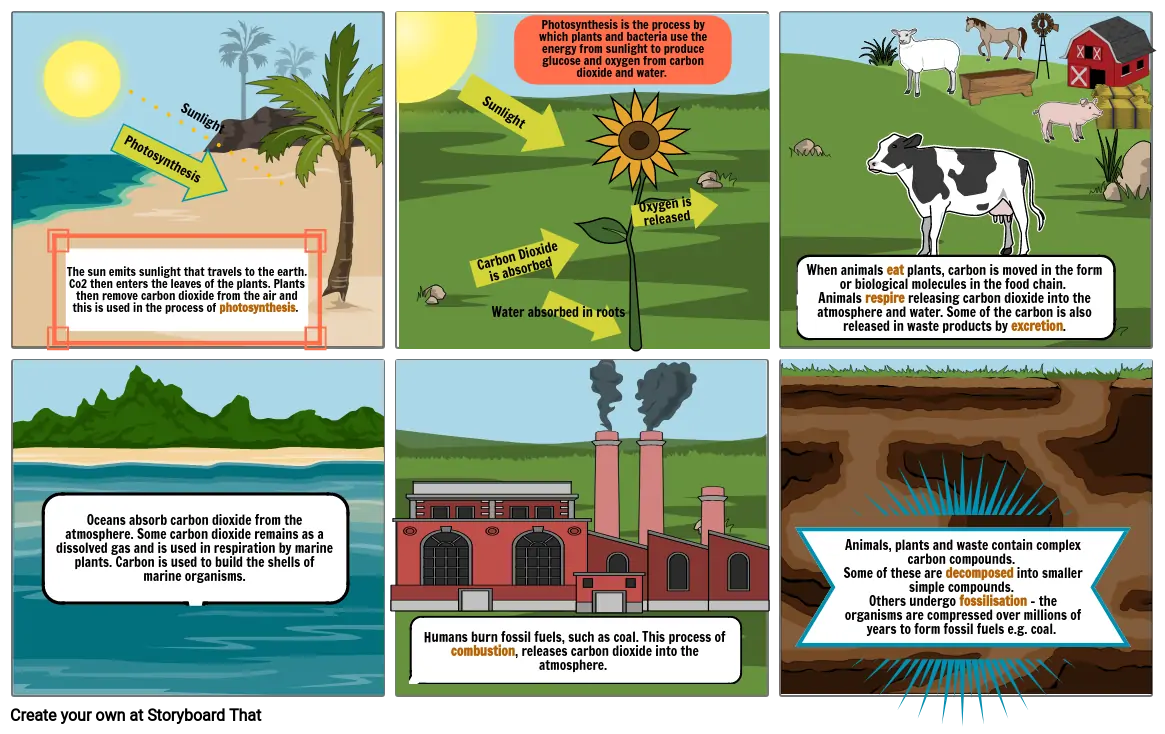The Carbon Cycle

Storyboard Text
- The sun emits sunlight that travels to the earth. Co2 then enters the leaves of the plants. Plants then remove carbon dioxide from the air and this is used in the process of photosynthesis.
- Photosynthesis
- Sunlight
- Sunlight
- Water absorbed in roots
- Carbon Dioxide is absorbed
- Photosynthesis is the process by which plants and bacteria use the energy from sunlight to produce glucose and oxygen from carbon dioxide and water.
- Oxygen is released
- When animals eat plants, carbon is moved in the form or biological molecules in the food chain. Animals respire releasing carbon dioxide into the atmosphere and water. Some of the carbon is also released in waste products by excretion.
- Oceans absorb carbon dioxide from the atmosphere. Some carbon dioxide remains as a dissolved gas and is used in respiration by marine plants. Carbon is used to build the shells of marine organisms.
- Humans burn fossil fuels, such as coal. This process of combustion, releases carbon dioxide into the atmosphere.
- Animals, plants and waste contain complex carbon compounds. Some of these are decomposed into smaller simple compounds. Others undergo fossilisation - the organisms are compressed over millions of years to form fossil fuels e.g. coal.
Over 30 Million Storyboards Created

